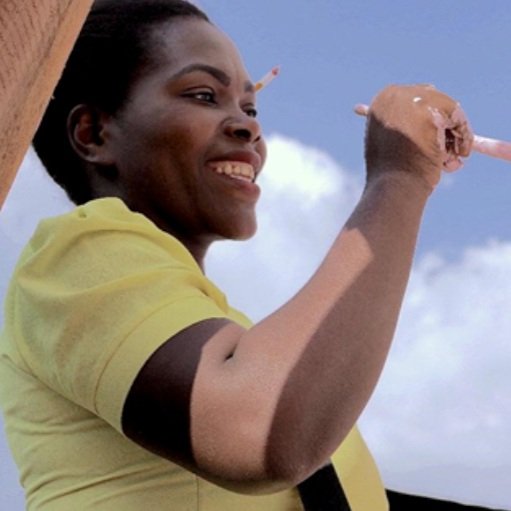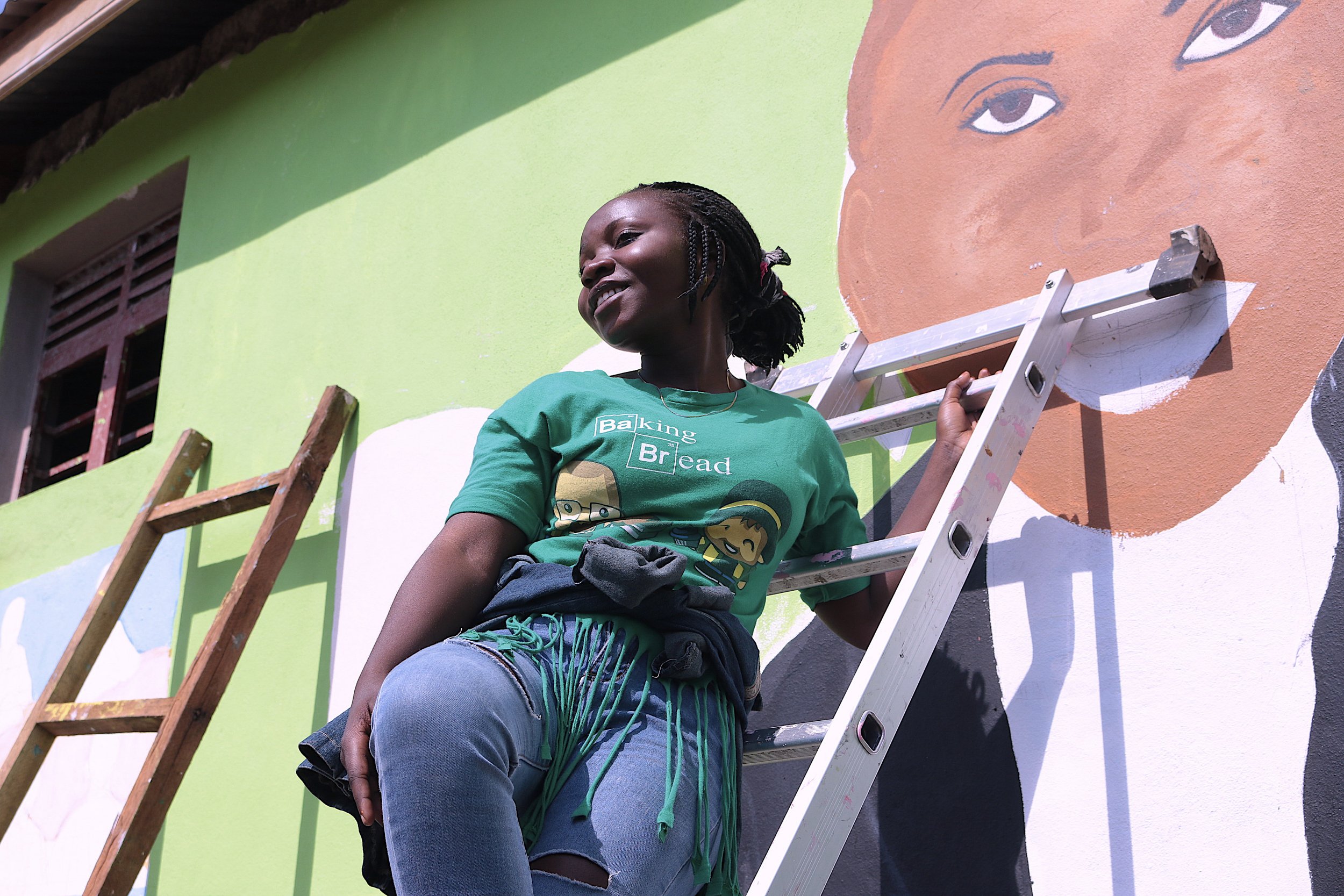Democratic Republic
of the Congo
Goma, North Kivu Province
DRC is the largest country in Sub-Saharan Africa and in 2100 will be 6th most populous in the world. While rich in natural resources, 73% live below the poverty line and persistent conflict in the Eastern region has led to over 6 million conflict related deaths since 1996. Women and girls are one of the most marginalized groups facing consistent violence and abuse and who are on the front lines organizing for peace and security.
Explore projects in the Democratic Republic of the Congo
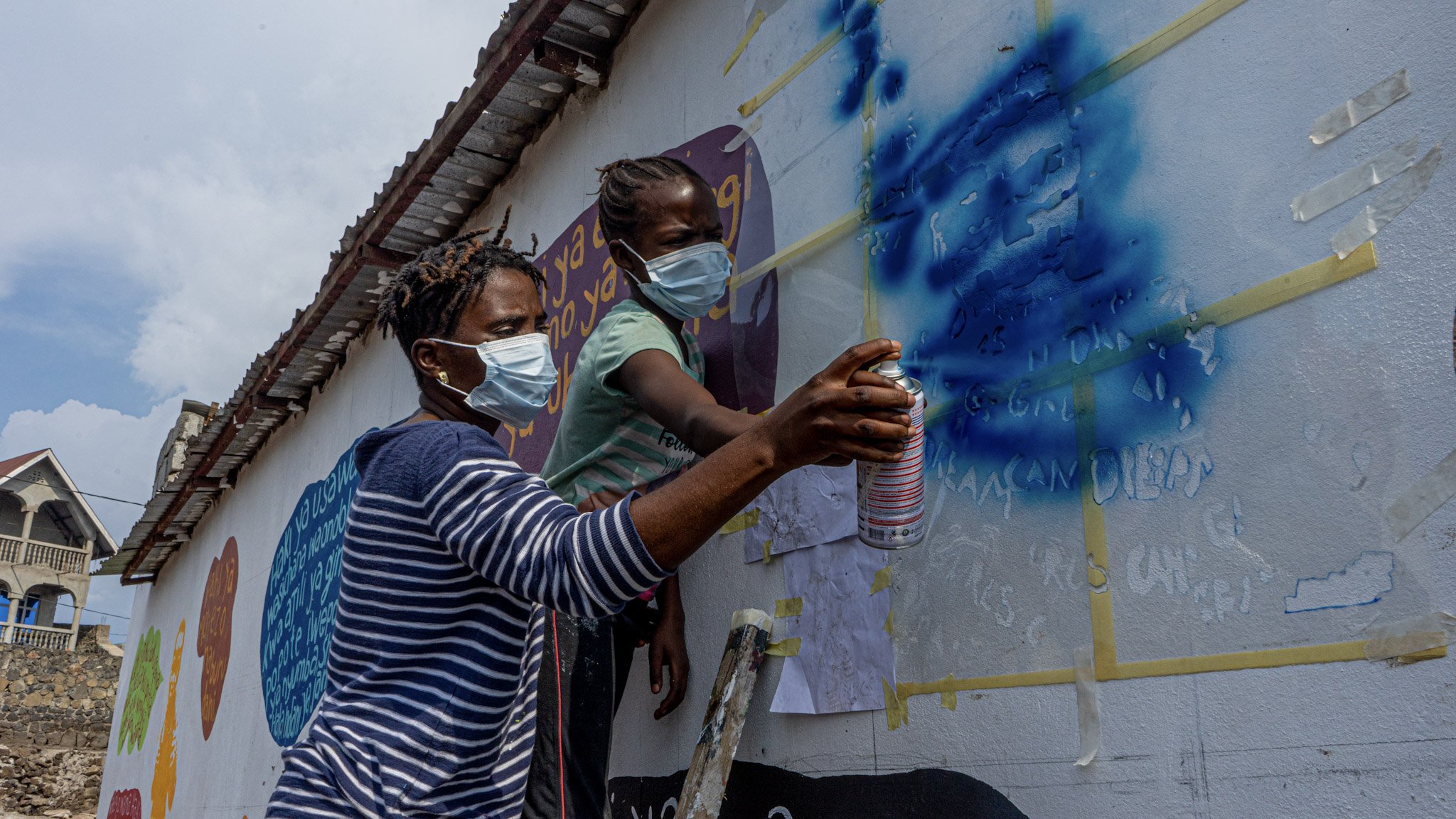
Musichana Hamuka (Girl Awakening)
-

January 2020 - Current
-

24,000 people reached
-

Promoting gender-equality and freedom from violence
-

305 girls, 8 mentors and 15 community leaders
-

72 youth sessions
Musichana Hamuka (Girl Awakening)
Musichana Hamuka (Girl Awakening) supports girls and young women in an urban, densely populated neighborhood in Goma, DRC, a region plagued by decades of conflict.
In a place where women and girls face constant violence, our flagship program helps them catalyze personal growth and change through evidence-based practices. We work with those who are among the most marginalized, providing a safe, female-only space where they can meet, learn, build solidarity, and develop strategies for social change.
CC is partnering with Tulizo Elle Space, and the Adolescent Girls’ Community of Practice at the Population Council to deliver this year-round, sustainable project.
Musichana Hamuka (Girl Awakening) is made possible with the generous support of the American people through the U.S. Agency for International Development (USAID).
Additionally, the Advancing Girls Initiative of the Tides Foundation, the Girls Opportunity Alliance, Together Women RISE, the Girls Rights Project, Belacqua Charitable Trust, Adventures of the Mind Foundation, & the generosity of individual donors have also made Girl Awakening possible.
-
Started with local partners in 2020, Girl Awakening is the first program to utilize evidence-based approaches from the Population Council's girl-centered program tools paired with our unique arts-based tools that improve mental health, mitigate trauma, build resilience, and cultivate joy.
We work in one of the most vulnerable communities in Goma, engaging with girls at the critical age of 10-12 to nurture the skills and strong social networks needed for them to support each other, defend their human rights and spark positive social change. Participants learn essential life skills, develop voice and expression, and receive school scholarships. The program helps prepare them to create the lives they want for themselves, ultimately shifting power toward girls and women and improving their lives.
Murals created in Girl Awakening
The girls created their own Bill of Rights workshopped from the Global Girls’ Bill of Rights. Four murals depict 14 core human rights routinely violated in their daily lives.
Strikingly, the rights they identified themselves already exist in different legal instruments ratified by the DRC– yet are not actually respected.
Spotlight: Girls’ Rights
In the large colorful bubbles spanning this mural are written 14 core human rights regularly violated in girls’ daily lives.
Interspersed are portraits of the participants themselves. During the program the girls were photographed; some of these were made into stencils that were spray painted onto the wall. Smaller colored shapes feature the girls’ handprints.
Among these rights :
The right to education in sexual and reproductive health.
The right to go to school: to a free, quality primary education.
The right to be protected from violence, mistreatment and all forms of abuse and exploitation.
The right to have a family, to be cared for and loved.
"My daughters don't understand what I tell them to do or give them advice. Espe even had suicidal and rebellious thoughts. She thought she was not loved and often said she was going to kill herself. Since they started attending the program, they understand me, they are motivated, they have found interest and hope in life."
- Mother of participants
“It is since I have been part of this program that I feel so listened to and considered.”
- Rosette, Participant
"Throughout the training, during the creative activities, I felt that art brings us together, we work as a team.”
- Mentor
“We thought that children cannot give their opinion because they are still children. We understood that they also have the right to express themselves, to choose and to say no. From now on, I will privilege the communication with the children to listen to their motivations and their choices ”
- Community member, forum participant

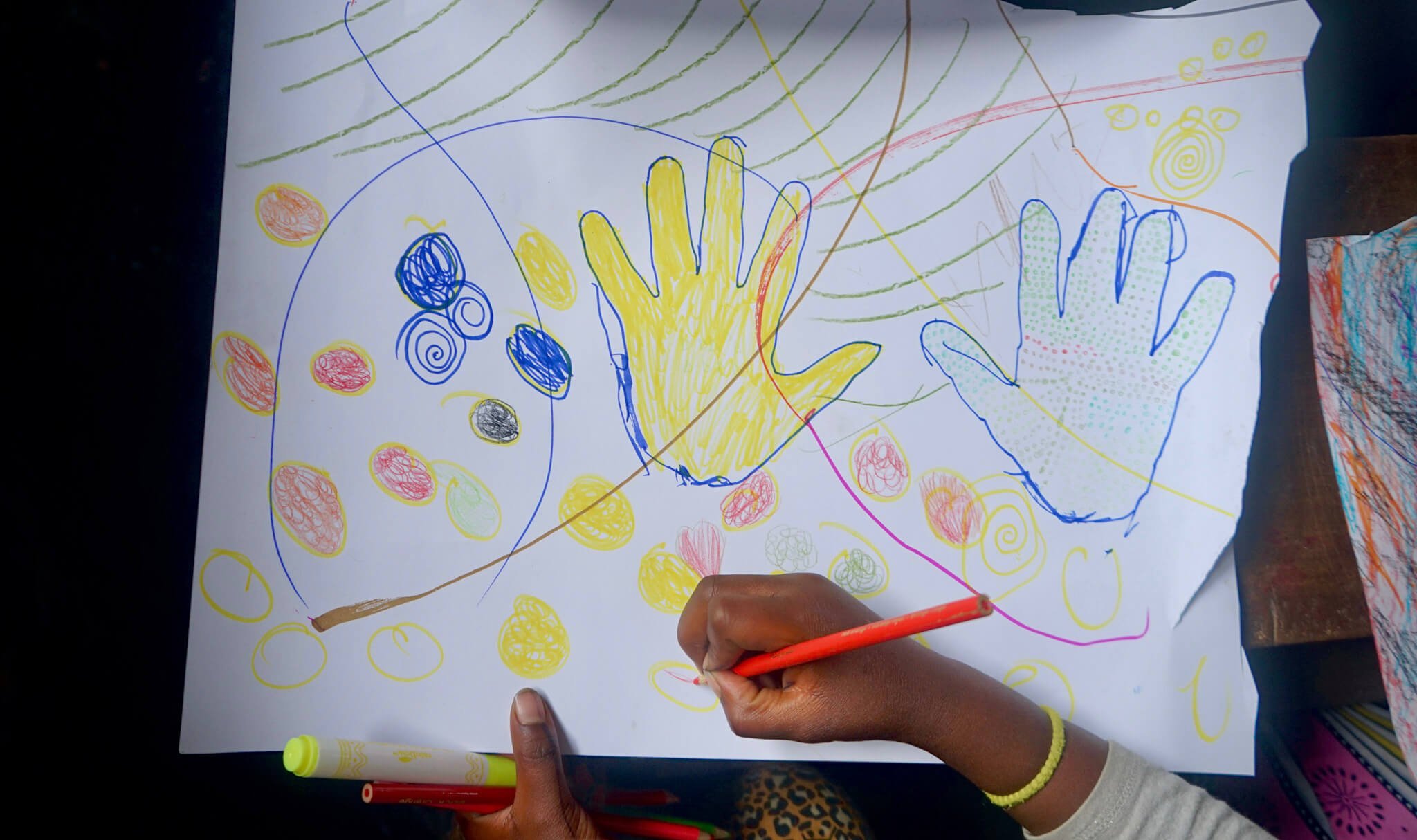




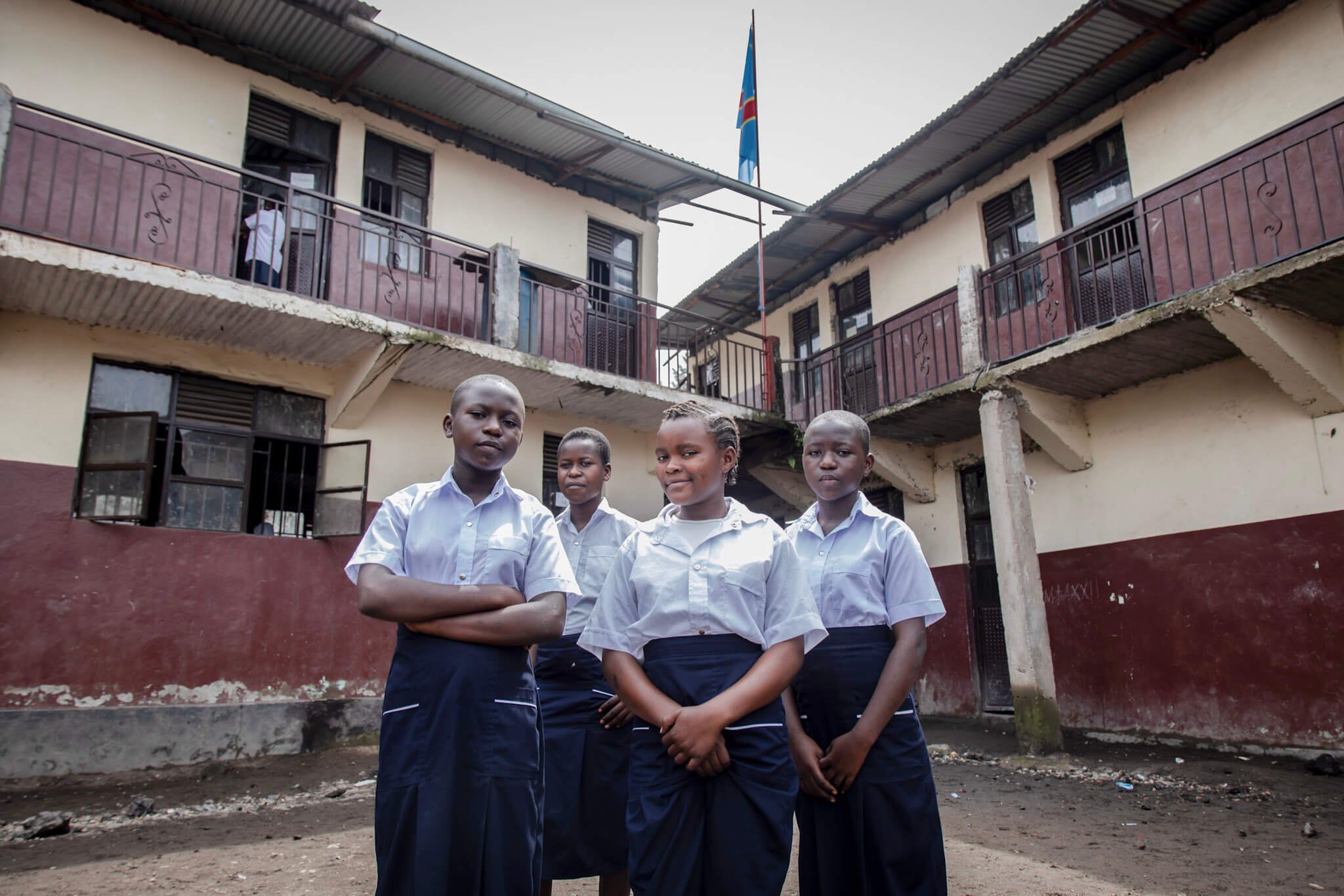
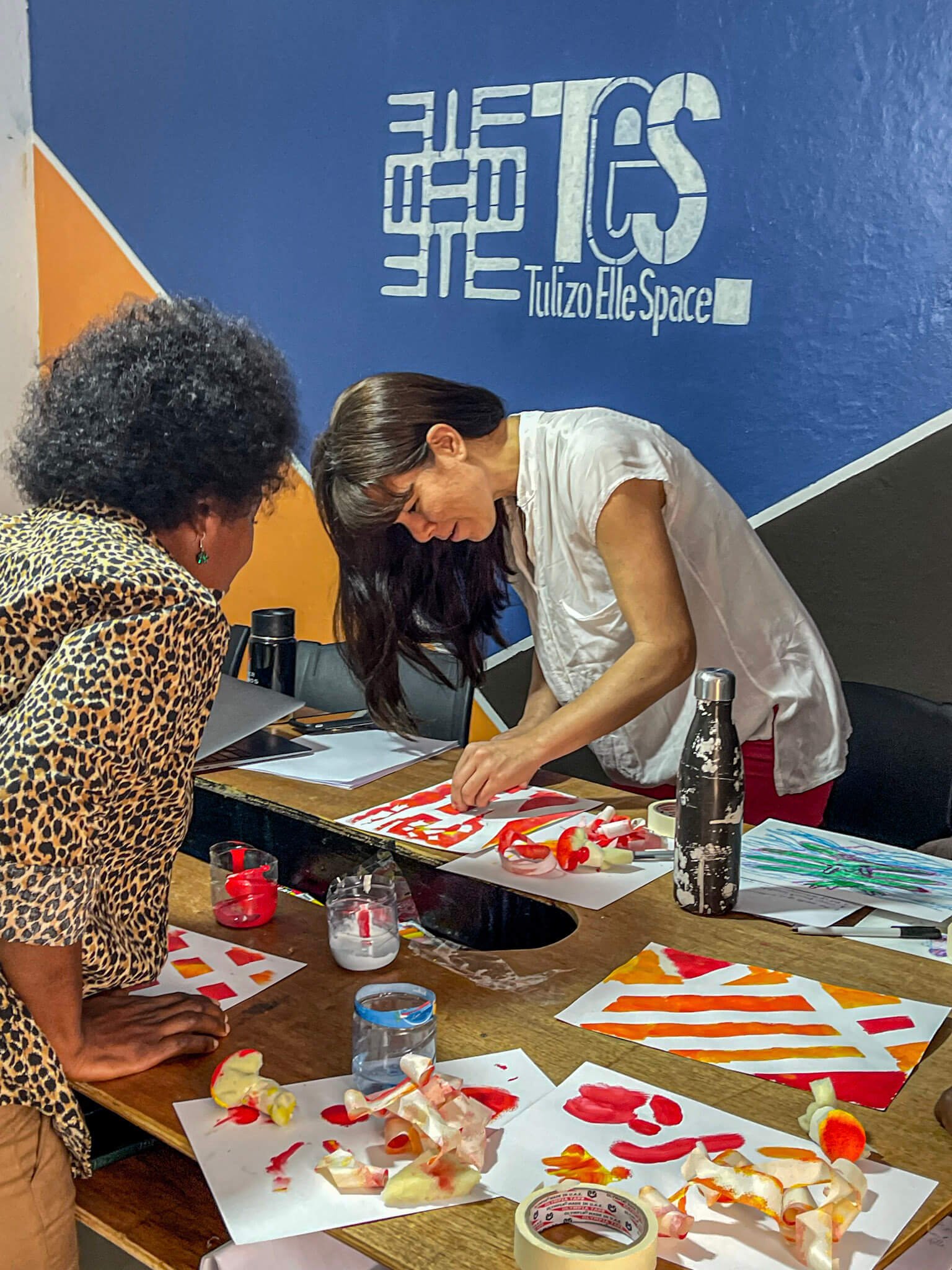

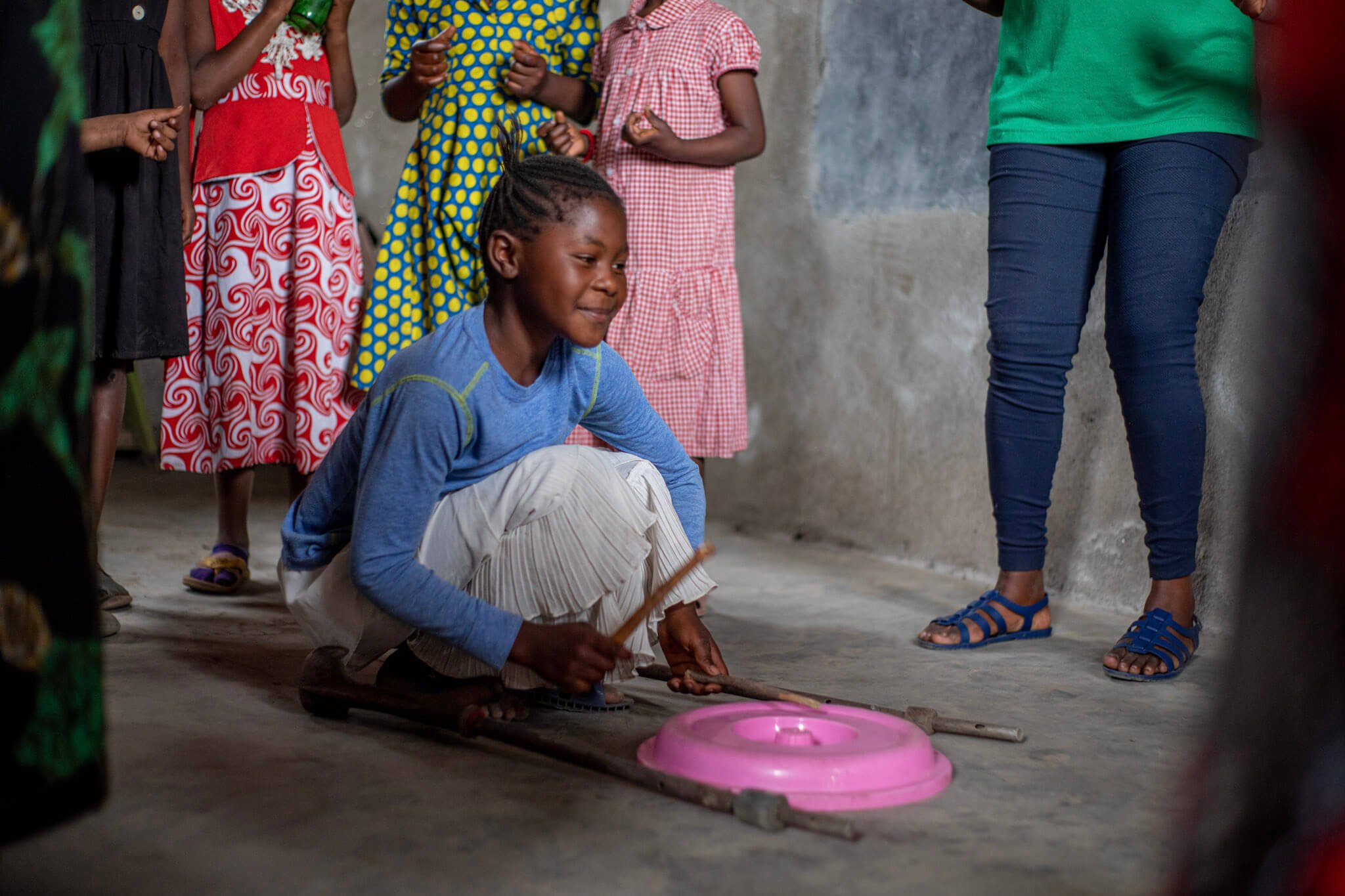







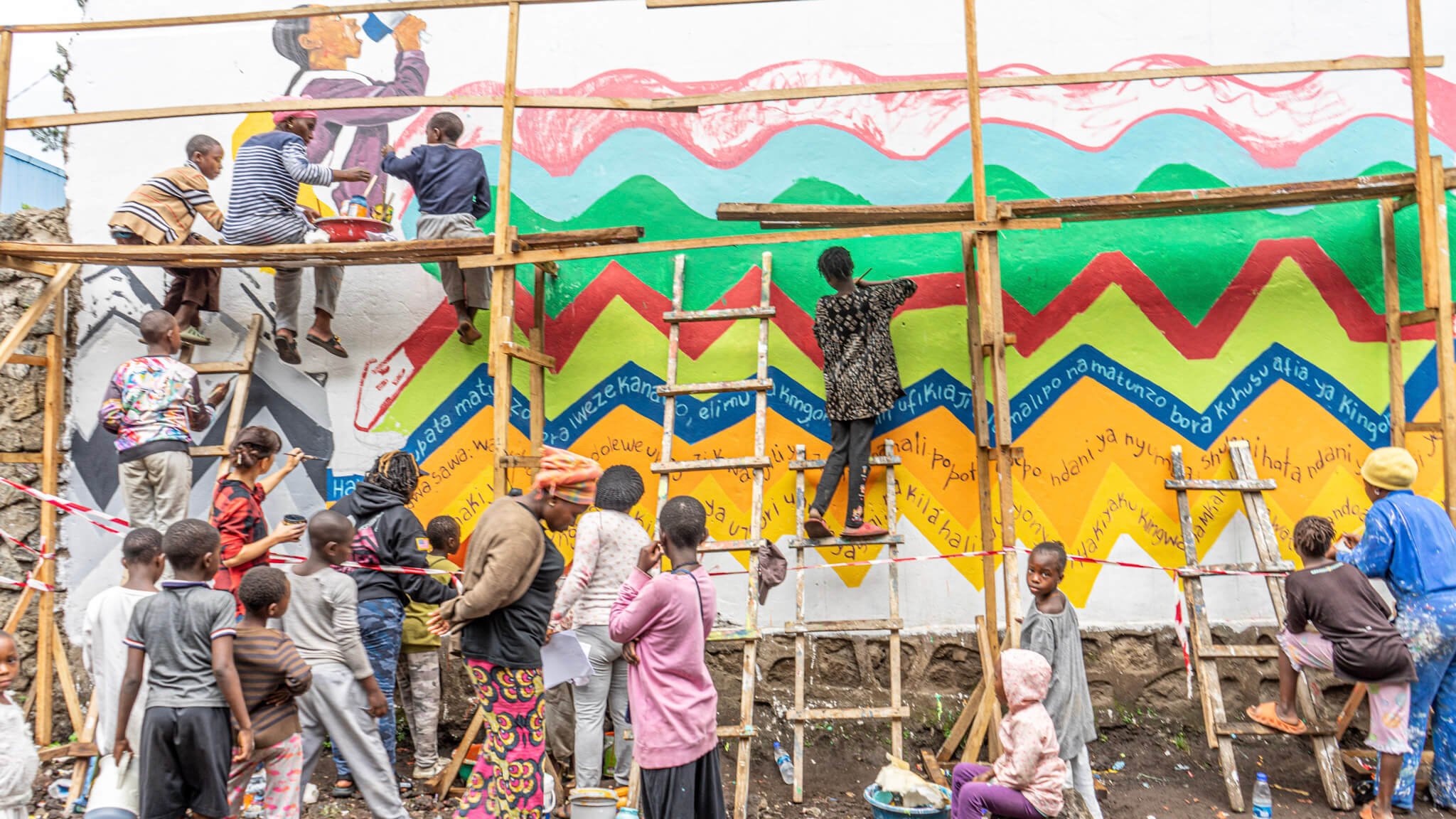

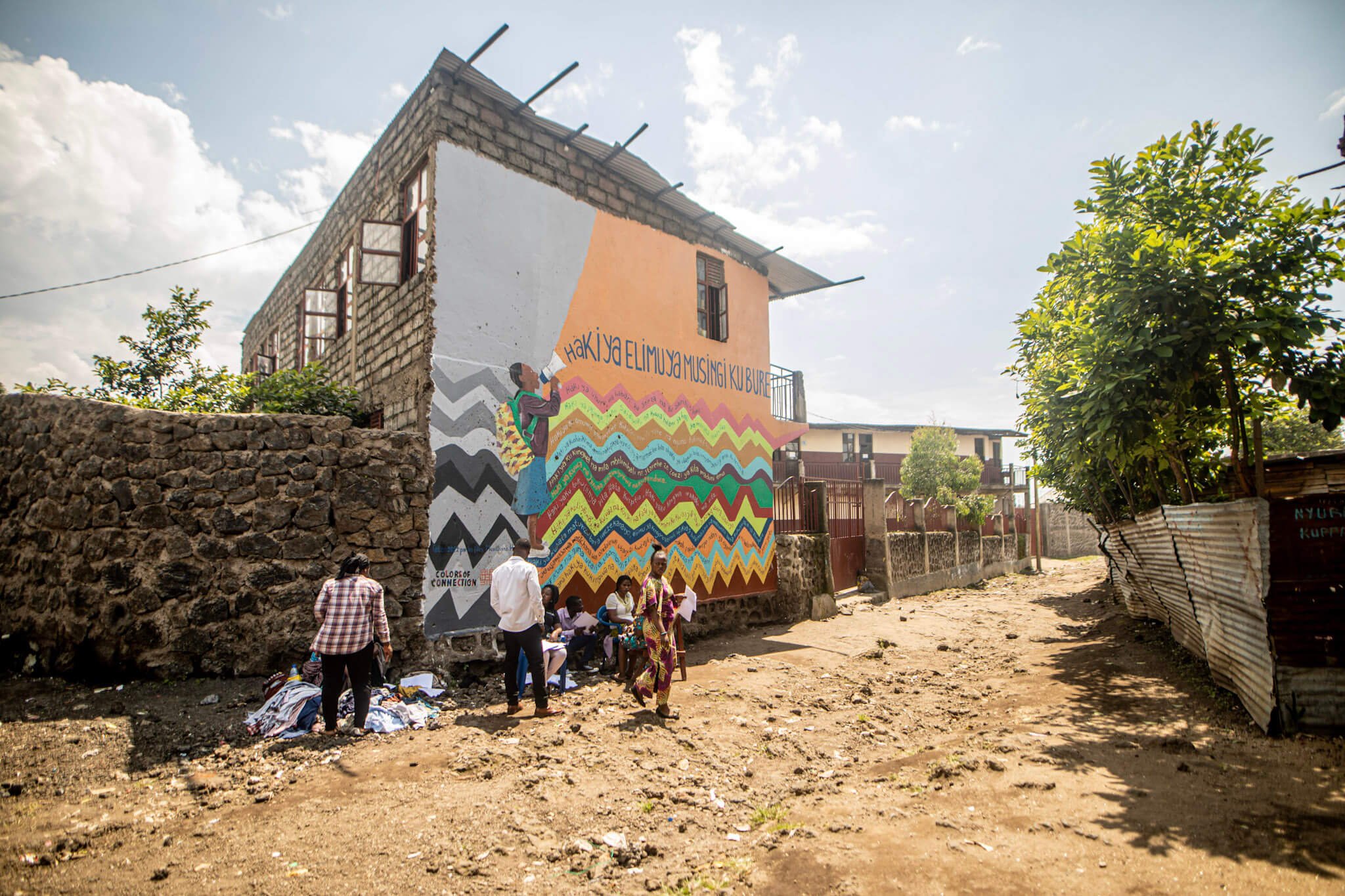
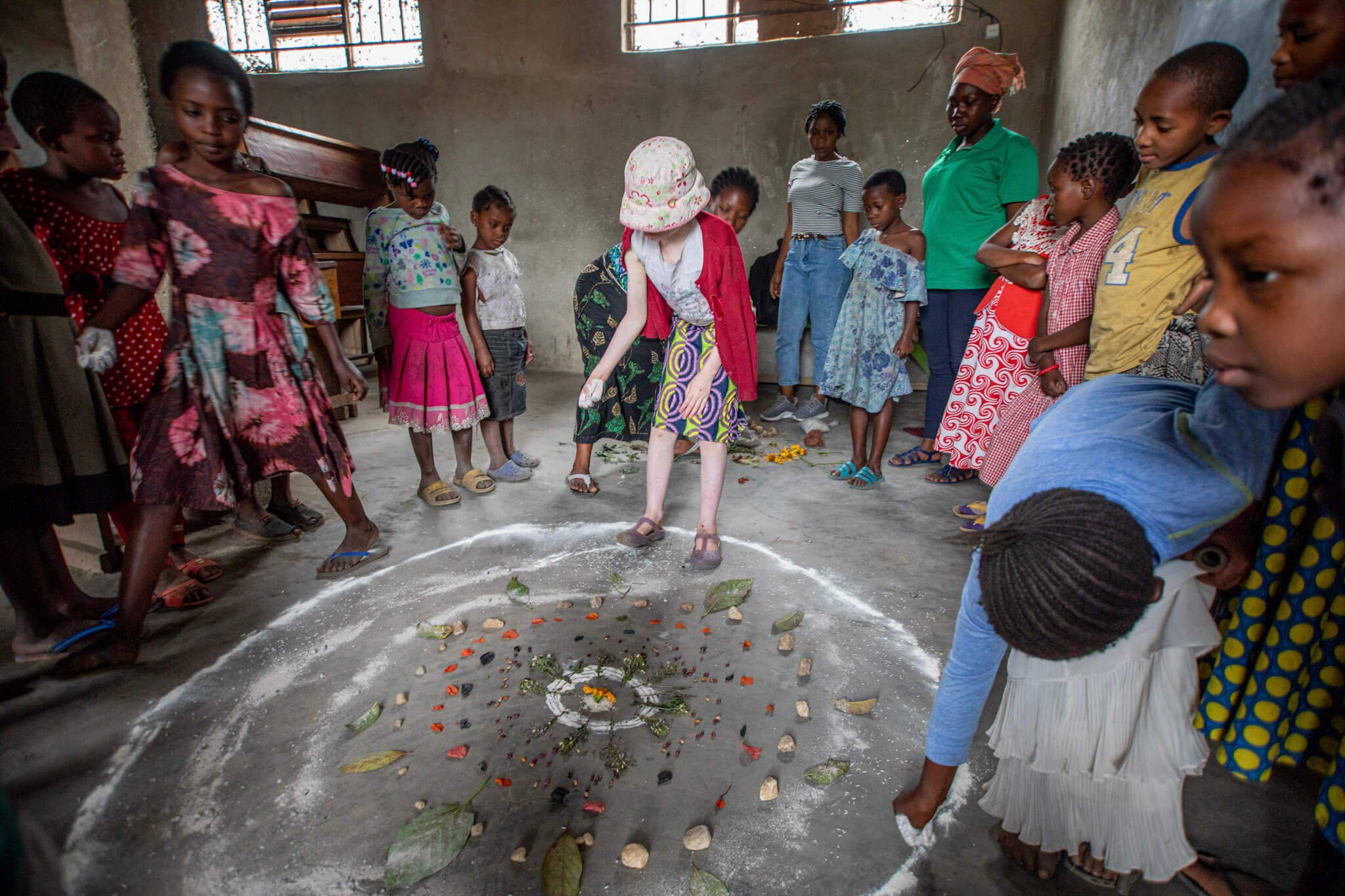
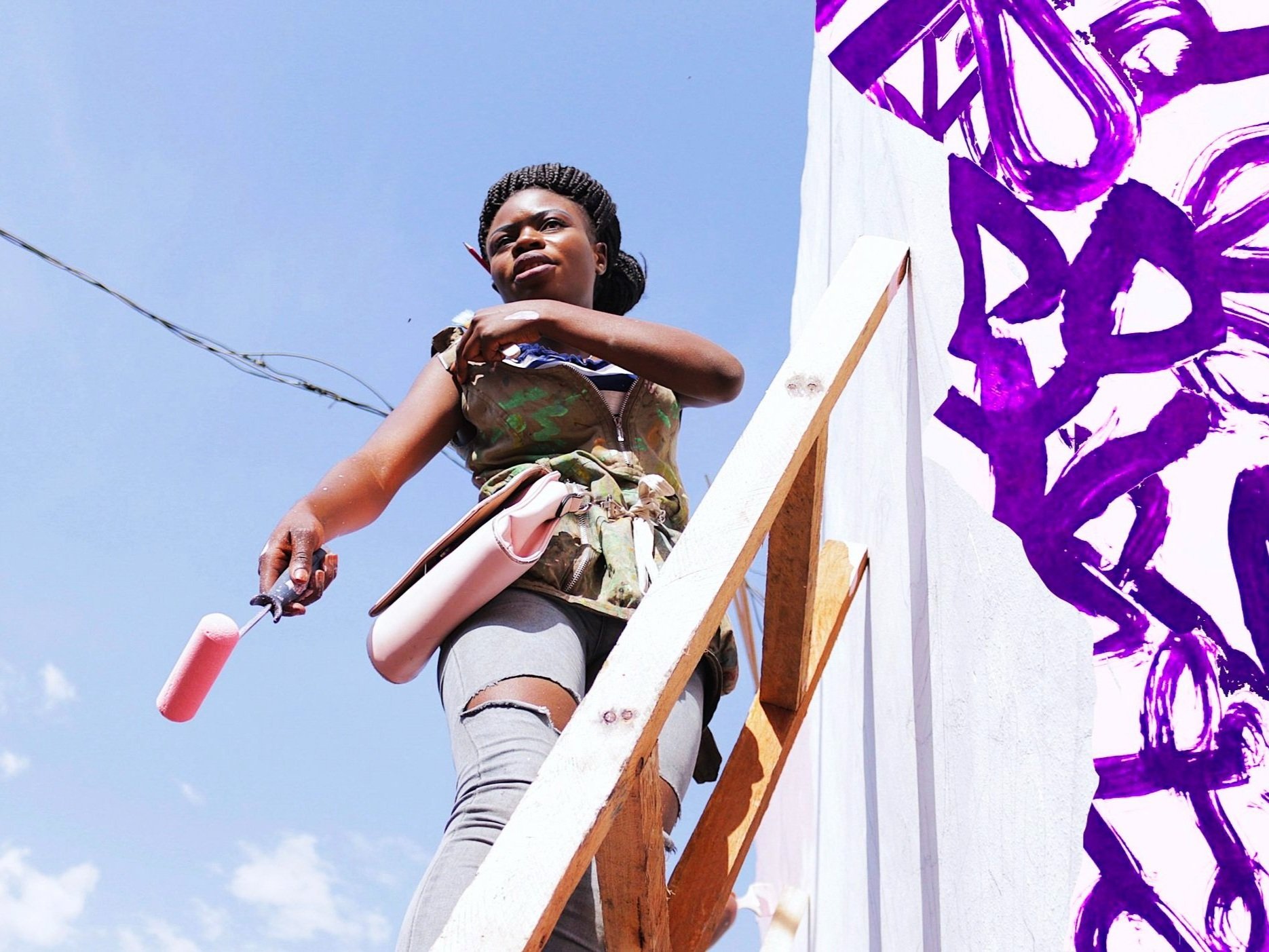
Tunaweza Portraits
-

January – April 2019
-

112,500 people reached
-

Challenged gender stereotypes
-

27 youth and 15 community leaders participants
-

20 youth sessions
Tunaweza Portraits
Tunaweza Portraits engaged 27 girls and young women from our Courage in Congo project. Formerly out-of-school and living in neighborhoods vulnerable to violence and poverty, participants continued to benefit from therapeutic art-based activities, social support and leadership development.
In a region where sexual violence is prevalent and pervasive in everyday life, CC provided opportunities for participants to cultivate solidarity, and host public forums enabling community dialogue around gender roles.
For this project, CC partnered with International Rescue Committee (IRC), Children's Voice, and the Adolescent Girls’ Community of Practice at the Population Council.
Support from the NoVo Foundation, the Girls’ Rights Project, Riverside Sharing Fund, Belacqua Charitable Trust, Glassy Baby White Light Fund, and the generosity of individual donors made this project possible.
-
Tunaweza Portraits invested in 27 girls and young women participants of our Courage in Congo Project, supporting their journey to greater leadership and visibility in their communities.
The Democratic Republic of the Congo (DRC) is widely known as one of the worst places in the world to be a woman. Recognized for extreme, conflict-related sexual violence, it has been dubbed the “rape capital of the world.” Despite this, DRC is a place where most girls and women will experience sexual assault or rape outside of conflict. The vast majority of perpetrators are members of survivors’ own families and communities.
In this project, young women and girls hosted public forums and worked with 15 community leaders to create public art pieces that challenge deeply held gender beliefs contributing to sexual violence.
In Swahili, a national language in DRC, “tunaweza” means “we are able/capable.” During Tunaweza Portraits, CC created a space for young women and girls to connect with their strength, build solidarity, develop leadership skills, and engage in critical analysis of gender roles.
Murals created
Participants chose to portray girls and women in key positions in society, doing work typically exclusive to men, such as serving as a magistrate or working as a doctor.
In 4 vibrant public murals and 27 posters, boldly laid out for the community to see, these young women rejected the prevailing narrative defining them as victims.
Spotlight: Female Artist
Tunaweza Portraits’ central goal is to challenge gender stereotypes; in this case through the act and representation of woman-created art. Female painters and visual artists are few and far between in the Eastern Congo region. Women and girls created this mural; this action itself a meaningful social act. They chose to portray a female artist, along with the words in Kiswahili “Kubali ujuzi wangu,” meaning, “Consider my talents.”
The center portrait replicates a photograph of Alice, one of the young women artists who painted this mural. Her fellow participants designed the motifs to her left and right, their design inspired by Congolese artist Justin Kasereka.
On the left side of the portrait, Alice, the young woman artist, appears again, shown painting on a canvas in which the flowers grow off the page.
The mural is located in a busy and frequently-trafficked crossroads in the commercial neighborhood Mapendo.
"I feel as if something new has been born in me."
"Now when I go out to the streets, everyone looks at me. People are surprised to see a woman painter."
- Esther
“These murals and messages, they help make sure that girls are listened to
when they don’t have sufficient voice within society. They make people think twice
about what they think they know about girls and what they are capable of doing.”
- Community Stakeholder, Goma, DR Congo
"I was very shy. I couldn’t speak out in front of a big crowd. I couldn’t because I was scared. But since this program I am not afraid anymore."
- Aline
"Girls are underestimated because people haven’t seen yet what they are capable of."
- Rosalie























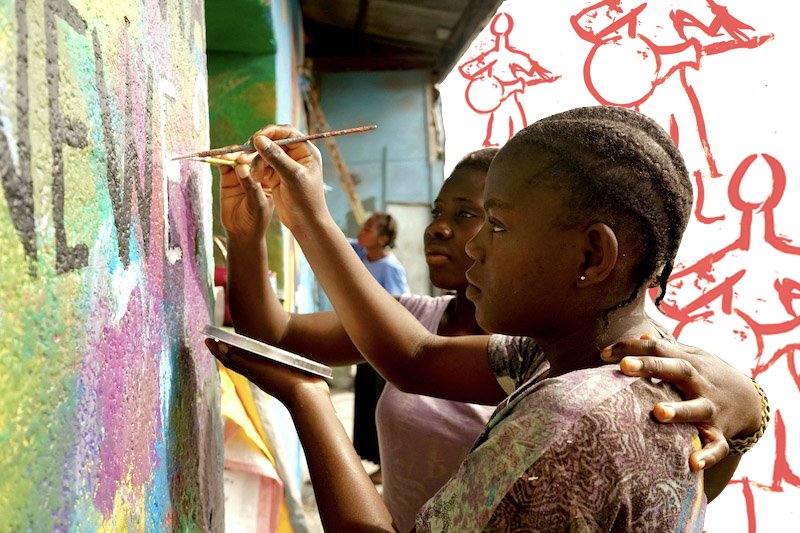
Courage in Congo
-

November 2015 – April 2016
-

55,000 people reached
-

Shifted gender perceptions
-

35 youth and 17 community leaders participants
-

55 youth sessions
Courage in Congo
Courage in Congo engaged 35 out-of-school girls living in the city of Goma in the eastern Democratic Republic of the Congo, a region of pervasive sexual violence and rampant poverty. The project offered a female-only space to invest in their social and emotional health and gain the skill sets to overcome challenges in their daily lives. The project promoted female leadership through the creation of two bold murals celebrating the strength of women and girls.
CC partnered with International Rescue Committee (IRC), CAMME-DRC, and the Adolescent Girls’ Community of Practice at the Population Council for this project.
Support from the NoVo Foundation, Newman’s Own Foundation, Belacqua Charitable Trust, and the generosity of individual donors made this project possible.
-
Courage in Congo, Colors of Connection’s first girl-focused project, supported 35 out-of-school girls living in neighborhoods vulnerable to violence and poverty. At the close of the project, these girls promoted female leadership by creating two bold murals celebrating the strength of women and girls.
Growing up female in the Democratic Republic of Congo, you are more likely to be sexually assaulted than to finish elementary school. Half of girls aged 5 to 17 do not go to school and 63.8 percent of women and girls report experiencing forced first sex.
Young women and girls face deeply embedded discrimination, pervasive sexual violence, and limited opportunities in a broader context of extreme poverty and ongoing political conflict. Courage in Congo provided a rare opportunity for community-led discussions between out-of-school teenage girls and 17 community leaders about advancing female rights. These talks laid the groundwork for girl participants to create 2 murals depicting women beyond their role as caretakers and celebrating their strength, agency and leadership.
The project provided a safe and creative female-only space where girls could meet regularly and cultivate their social and emotional health. They gained the skillsets and resources to help them overcome some of the core challenges they face in health, education, and human rights.
Several post-project initiatives continue, including a volunteer-run arts class, psychosocial support, and scholarships enablints participants to return to school.
Murals created
Congolese women are regularly excluded from meaningful participation in skilled work and political life. Discussions with the Community Arts Council (CAC) members and young women participants highlighted that Congolese women themselves doubt their own capacity and the ability of other women to be leaders.
Two murals, Women in Leadership and Women in the Workforce, pushed back on this belief, showing the capacity of women and girls beyond their roles as wives and caretakers.
Spotlight: Women in Leadership
The creators of this mural created a powerful image rejecting the belief that women are not fit to be leaders, a belief held by much of the community, including most women and girls themselves.
There are two sides to the mural: on the first is an image of a strong female who believes in herself and her own capacity to create change in society. On the other, both men and women show support for a female political candidate, encouraging her to move forward and create change in her society.
Written in Swahili are the words “Mwanamke shujaa,” meaning woman leader, and “Mwanamke tuko nyuma yoko,” meaning woman we are behind you.
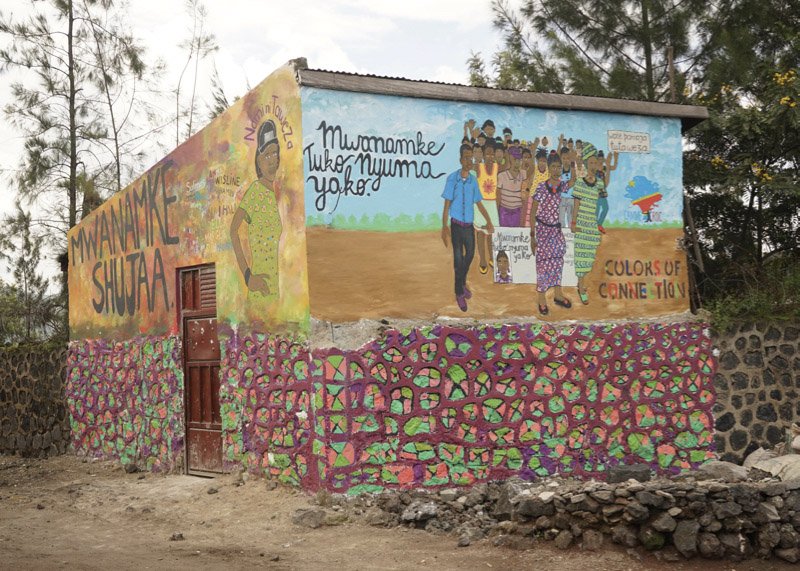


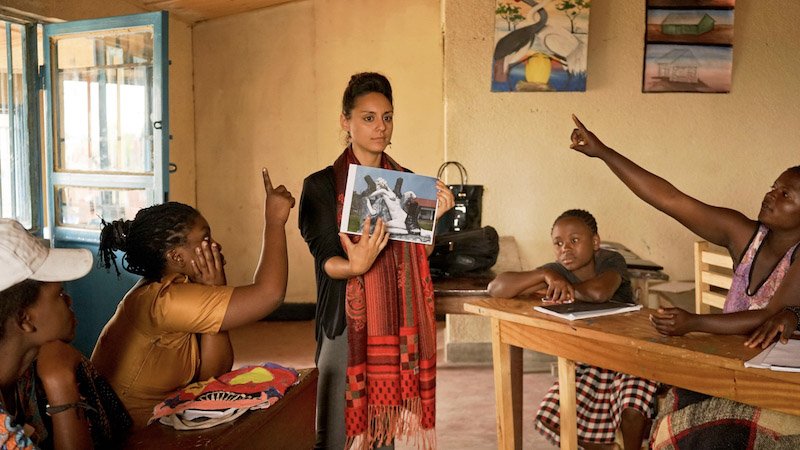


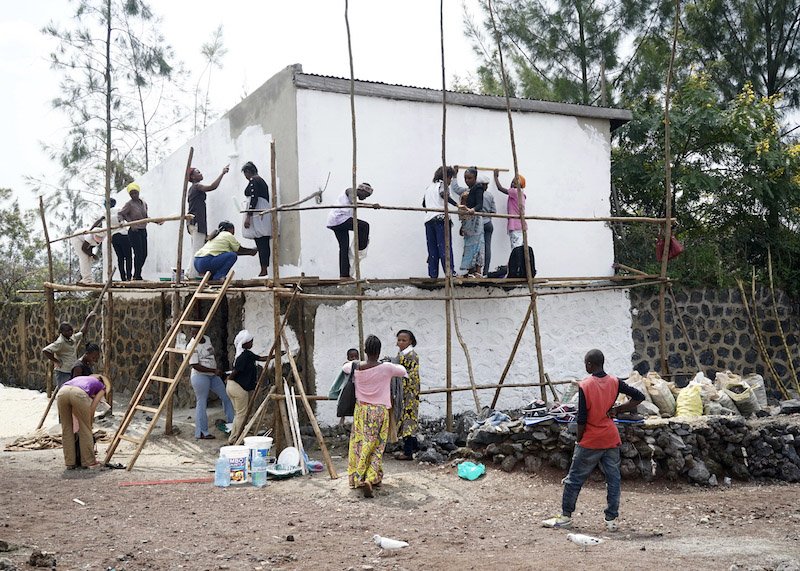
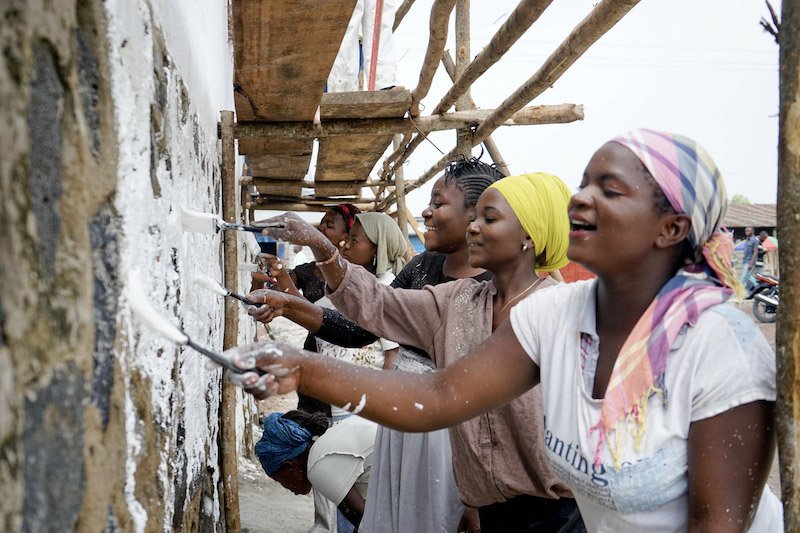






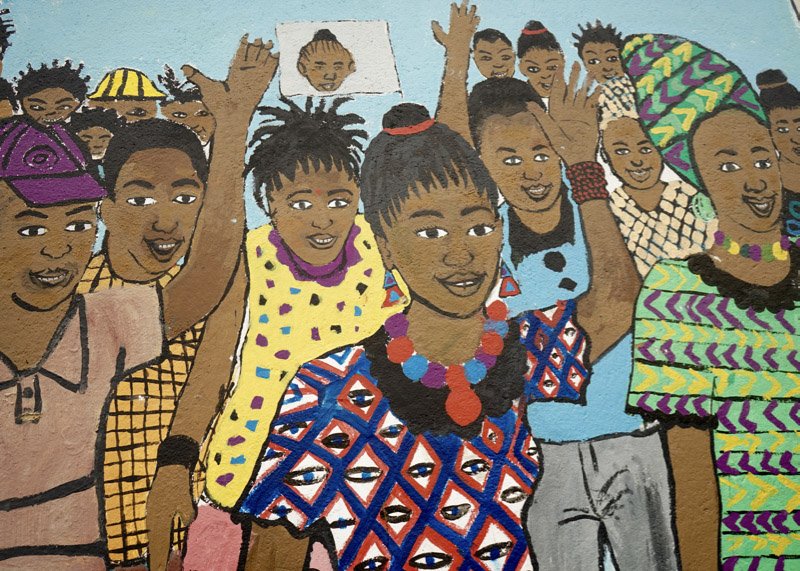


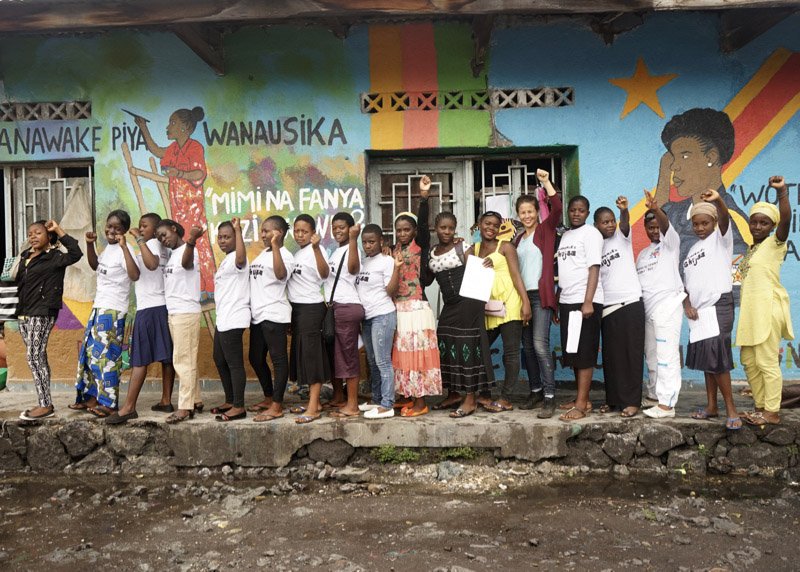
“Goma is a population that is still traumatized with everything that has happened with war over and over again, rape, violence, the way that people have been killed – I think that the population is traumatized. But, art – it can heal. It gives joy, actually. When you see a drawing or a positive image, we become happy. I think this can be a way to de-traumatize.”
- Community Arts Council member, Post-Project Evaluation
“We wrote ‘mwanamke shujaa’ meaning ‘women leaders’ on our mural painting. There are girls that discredit themselves, thinking that they can’t paint or draw. But if they pass by this painting, even though they may neglect their own talents now they can start to think differently and they can think that if they wanted, they could do this too.”
- Courage in Congo Project Participant, Post-Project Evaluation
“Other images in Goma stigmatize and victimize women. But, the images that you have created with this project have given value to women. These images show another side of women and women’s issues.”
- Community Arts Council member, Post-Project Evaluation
“What I want to show to people is the future, what I will have and what I will be. Everything that I draw relates to that.”
- Participant Interview, Mid-Project Evaluation
























